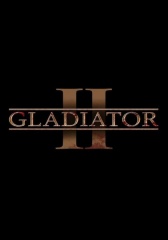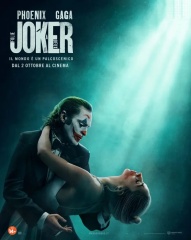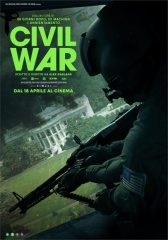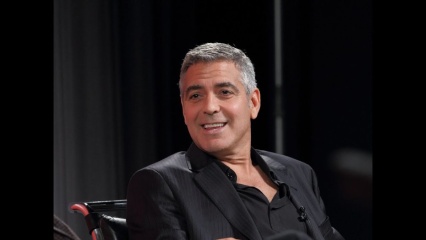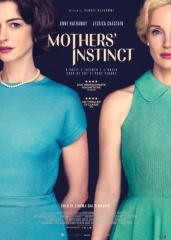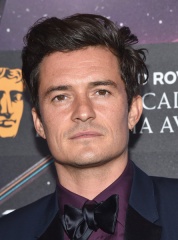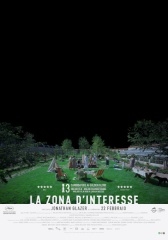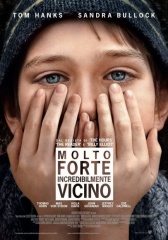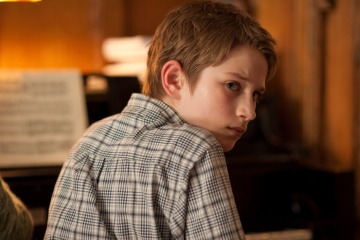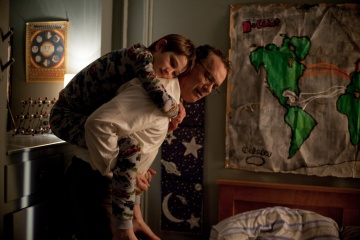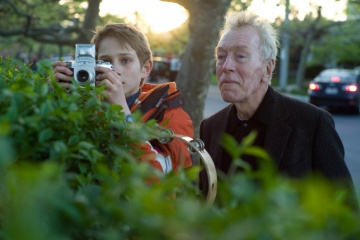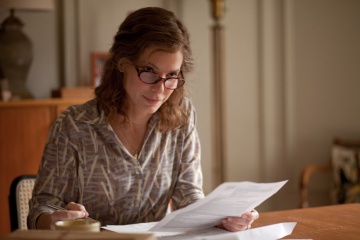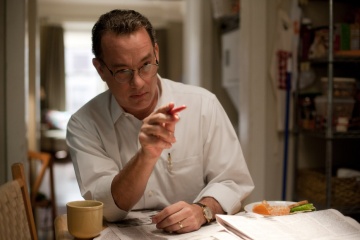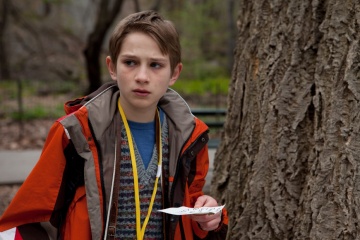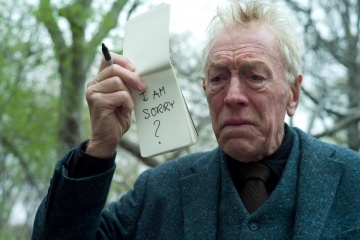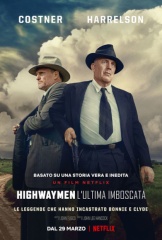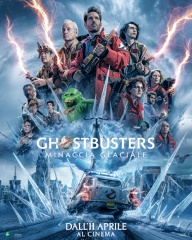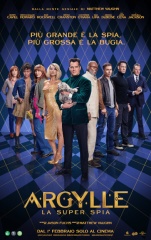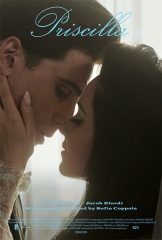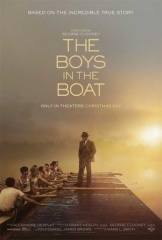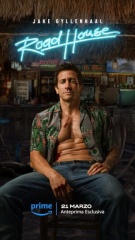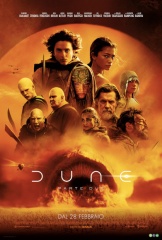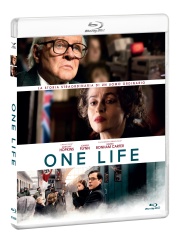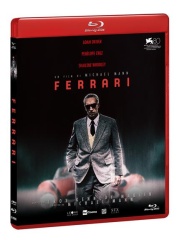|
|
MOLTO FORTE, INCREDIBILMENTE VICINO: IL REGISTA DI 'BILLY ELLIOT', 'THE HOURS' E 'THE READER - A VOCE ALTA' STEPHEN DALDRY GUARDA ALL'11 SETTEMBRE CON LA SOGGETTIVA DI UN BAMBINO, PROTAGONISTA ASSOLUTO AFFIANCATO, SOLO A TRATTI E CON DISCREZIONE, DA TOM HANKS, SANDRA BULLOCK E, INTERPRETE CHIAVE, MAX VON SYDOW
RECENSIONE ITALIANA e PREVIEW in ENGLISH by PETER DEBRUGE (www.variety.com) - 62. Festival del Cinema di Berlino (9-19 Febbraio 2012) - FUORI CONCORSO - Dal 23 MAGGIO
"... Se il sole esplodesse non ce ne accorgeremmo per otto minuti... era passato un anno dalla morte di mio padre e sentivo che i miei otto minuti con lui stavano per scadere... Era l'unico modo di allungare i miei otto minuti con lui."
Oskar Schell (Thomas Horn)
(Extremely loud & Incredibly Close; USA 2011; drammatico; 129'; Produz.: Paramount Pictures/Scott Rudin Productions/Warner Bros. Pictures; Distribuz.: Warner Bros. Pictures Italia)
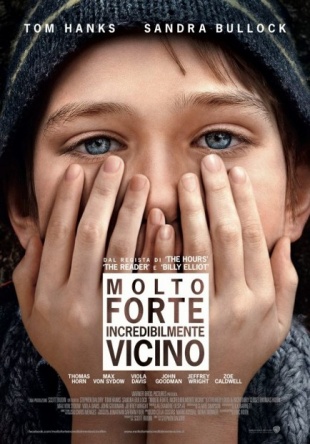 See SYNOPSIS
See SYNOPSIS
|
Titolo in italiano: Molto forte, incredibilmente vicino
Titolo in lingua originale:
Extremely loud & Incredibly Close
Anno di produzione:
2011
Anno di uscita:
2012
Regia: Stephen Daldry
Sceneggiatura:
Eric Roth
Soggetto: Tratto dal romanzo omonimo di Jonathan Safran Foer (Guanda Editore).
Cast: Tom Hanks (Thomas Schell)
Sandra Bullock (Linda Schell)
Thomas Horn (Oskar Schell)
James Gandolfini (Ron)
John Goodman (Stan il portiere)
Viola Davis (Abby Black)
Jeffrey Wright (William Black)
Max von Sydow (l'inquilino)
Zoe Caldwell (la nonna di Oskar)
Stephen McKinley Henderson (Walt il fabbro)
Musica: Alexandre Desplat
Costumi: Ann Roth
Scenografia: K.K. Barrett
Fotografia: Chris Menges
Montaggio: Claire Simpson
Effetti Speciali: Steven Kirshoff
Makeup: Linda Kaufman e Joanna McCarthy; Pamela S. Westmore (Per Sandra Bullock)
Casting: Ellen Lewis e Mele Nagler
Scheda film aggiornata al:
25 Novembre 2012
|
Sinossi:
IN BREVE:
Molto forte, incredibilmente vicino racconta la storia di un bambino di nove anni, Oskar. Dopo aver ritrovato tra le cose del padre morto nel crollo delle Torri Gemelle una misteriosa chiave, Oskar si mette in testa di scoprire a quale serratura appartiene e cosa câè dentro quel 'qualcosa' di chiuso, dando il via ad una piccola, grande odissea, sorprendente e dai toni esilaranti e commoventi al tempo stesso.
IN DETTAGLIO:
Adattamento dellâacclamato bestseller di Jonathan Safran Foer, Molto Forte Incredibilmente Vicino è una storia che si sviluppa nella mente del giovane Oskar Schell, un creativo undicenne newyorkese che scopre una chiave tra gli oggetti appartenuti a suo padre defunto. Questa scoperta lo spinge a condurre una ricerca approfondita tra le strade della città per trovare cosa apre quella chiave. A distanza di un anno dalla morte di suo padre avvenuta nellâattentato al World Trade Center, in quello che Oskar ha definito âIl giorno peggioreâ, il ragazzo è determinato a mantenere vivo il legame con lâuomo che con gioia lo ha portato ad affrontare le sue paure più profonde. Mentre attraversa i cinque distretti di New York alla ricerca del lucchetto mancante â cosa che gli permette di incontrare una vasta gamma di persone tra le più diverse, ognuna a proprio modo 'sopravvissuta' - Oskar inizia a scoprire dei legami nascosti con il padre di cui sente la mancanza, con la madre che sembra essere molto lontana da lui e con tutto il mondo rumoroso, pericoloso e scombussolato che lo circonda.
SYNOPSIS:
A nine-year-old amateur inventor, Francophile, and pacifist searches New York City for the lock that matches a mysterious key left behind by his father, who died in the World Trade Center on September 11, 2001.
Oskar Schell is an alert nine-year-old boy. Like so many other New Yorkers September 9, 2001 is the worst day of his young life because this is the day his father dies in the World Trade Center. The boy discovers a key among his fatherâs possessions and, believing this to be his only way of maintaining some connection with his beloved father, he begins a furtive search for the corresponding lock. Working systematically he approaches 472 people with the surname Black â any one of them could be the owner of the key. He is accompanied on his odyssey across New York by a mysterious old man who has rented a room at Oskarâs grandmotherâs place. Oskar suspects that this man is none other than his German-born grandfather, but the old boy refuses to say one word â¦
Stephen Daldryâs film is an adaptation of Jonathan Safran Foerâs best-selling novel of the same name. As the director of THE HOURS and THE READER, Daldry is no stranger to literary adaptations. EXTREMELY LOUD AND INCREDIBLY CLOSE is both a coming-of-age story and a declaration of love to a magical place and its inhabitants.
Commento critico (a cura di PATRIZIA FERRETTI)
|
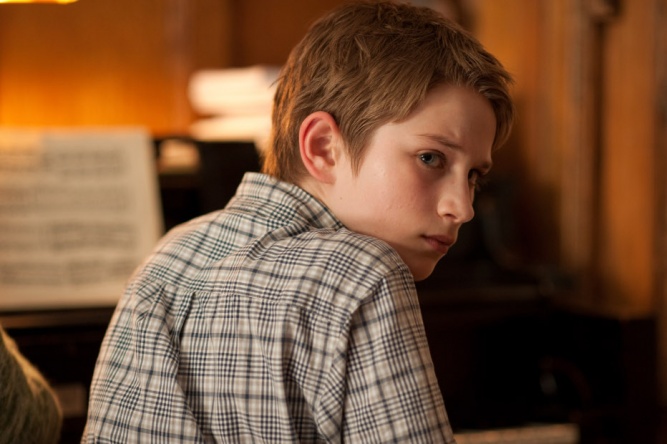 L'11 SETTEMBRE NON HA CERTO RISPARMIATO NULLA AD ALCUNO, NEPPURE AI BAMBINI. IL REGISTA STEPHEN DALDRY TROVA LA SUA CIFRA PER DARE VOCE ALL'INCONTENIBILE DOLORE DI UN BAMBINO, LASCIANDO TRA LE RIGHE, QUALI PRESENZE DISCRETE E RISPETTOSE, I GENITORI TOM HANKS E SANDRA BULLOCK. SBOCCIA COSI' L'INSOLITO PERCORSO 'INZIATICO' AD UNA NUOVA VITA, LA' DOVE SI ANNIDA UN INCONTRO IMPREVISTO (MAX VON SYDOW) IN GRADO DI FAR LA DIFFERENZA
L'11 SETTEMBRE NON HA CERTO RISPARMIATO NULLA AD ALCUNO, NEPPURE AI BAMBINI. IL REGISTA STEPHEN DALDRY TROVA LA SUA CIFRA PER DARE VOCE ALL'INCONTENIBILE DOLORE DI UN BAMBINO, LASCIANDO TRA LE RIGHE, QUALI PRESENZE DISCRETE E RISPETTOSE, I GENITORI TOM HANKS E SANDRA BULLOCK. SBOCCIA COSI' L'INSOLITO PERCORSO 'INZIATICO' AD UNA NUOVA VITA, LA' DOVE SI ANNIDA UN INCONTRO IMPREVISTO (MAX VON SYDOW) IN GRADO DI FAR LA DIFFERENZA
In molti ci hanno già provato. E la critica è spuntata subito da dietro l'angolo, a mettere il dito in una piaga che nessuno, voglio sperare, si sia mai sognato di strumentalizzare. L'11 Settembre è un evento tale che supera se stesso, travolge a tutti i livelli e dunque parole e immagini non sembrano mai veramente appropriate. Perciò critiche su critiche sono arrivate ad esempio, sul World Trade Center (2006) di Oliver Stone con Nicolas Cage e Michael Peña. Lo avevano anticipato |
|
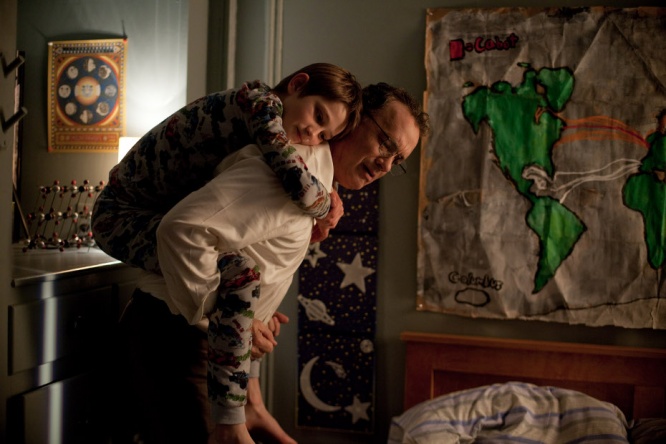 altri in un omaggio a regia collettiva (tra cui Sean Penn, Mira Nair, Ken Loach e Alejandro González Iñárritu) con 11'09"01 - September 11, uscito simbolicamente l'11 Settembre 2002. Simbolo mantenuto rigorosamente per il numero degli episodi contenuti nel film (11 per l'appunto), per la durata (ognuno di 11 minuti, 9 secondi e un fotogramma), per le regie (affidati a 11 registi di fama internazionale) compresa la loro provenienza (da 11 Paesi, e culture, diversi). Ma in tutti i casi si era trattato di un'ottica adulta. In Molto forte, incredibilmente vicino, adattamento cinematografico dell'omonimo romanzo di Jonathan Safran Foer, il regista di Billy Elliot (2000), The Hours (2002) e The Reader - A voce alta (2008), Stephen David Daldry, ha voluto far convergere un simile 'immenso' nel cuore e nella mente di un bambino, né troppo grande, né troppo piccolo, l'età giusta per capire e sentire tutta la portata di
altri in un omaggio a regia collettiva (tra cui Sean Penn, Mira Nair, Ken Loach e Alejandro González Iñárritu) con 11'09"01 - September 11, uscito simbolicamente l'11 Settembre 2002. Simbolo mantenuto rigorosamente per il numero degli episodi contenuti nel film (11 per l'appunto), per la durata (ognuno di 11 minuti, 9 secondi e un fotogramma), per le regie (affidati a 11 registi di fama internazionale) compresa la loro provenienza (da 11 Paesi, e culture, diversi). Ma in tutti i casi si era trattato di un'ottica adulta. In Molto forte, incredibilmente vicino, adattamento cinematografico dell'omonimo romanzo di Jonathan Safran Foer, il regista di Billy Elliot (2000), The Hours (2002) e The Reader - A voce alta (2008), Stephen David Daldry, ha voluto far convergere un simile 'immenso' nel cuore e nella mente di un bambino, né troppo grande, né troppo piccolo, l'età giusta per capire e sentire tutta la portata di |
|
 un tale macigno di sofferenza. E Daldry, in tal senso, non è certo digiuno alla sensibilità infantile (Billy Elliot), spesso elevata al di sopra dell'età , al di là dei modi con cui possa esprimersi. Ma qui, per il nostro nuovo protagonista, Oskar Schell, non si tratta di un sogno o di un'aspirazione da realizzare. L'elaborazione di un lutto come questo, può assumere percorsi alquanto inconsueti, con incontri e soste che sembrano la traslitterazione di un processo iniziatico alla vita che in questo modo si rende pronta ad abbandonare per sempre l'infanzia, guadagnandosi l'idoneità a sopravvivere nella 'giungla urbana' del mondo a cui è destinato. E' su questo processo che Daldry punta l'obiettivo chiamando in causa in prima persona il diretto interessato: il giovane attore Thomas Horn prende sul serio il suo ruolo e aderisce come un guanto alla volontà direttiva di rivolgersi allo spettatore con una voce fuori campo che
un tale macigno di sofferenza. E Daldry, in tal senso, non è certo digiuno alla sensibilità infantile (Billy Elliot), spesso elevata al di sopra dell'età , al di là dei modi con cui possa esprimersi. Ma qui, per il nostro nuovo protagonista, Oskar Schell, non si tratta di un sogno o di un'aspirazione da realizzare. L'elaborazione di un lutto come questo, può assumere percorsi alquanto inconsueti, con incontri e soste che sembrano la traslitterazione di un processo iniziatico alla vita che in questo modo si rende pronta ad abbandonare per sempre l'infanzia, guadagnandosi l'idoneità a sopravvivere nella 'giungla urbana' del mondo a cui è destinato. E' su questo processo che Daldry punta l'obiettivo chiamando in causa in prima persona il diretto interessato: il giovane attore Thomas Horn prende sul serio il suo ruolo e aderisce come un guanto alla volontà direttiva di rivolgersi allo spettatore con una voce fuori campo che |
|
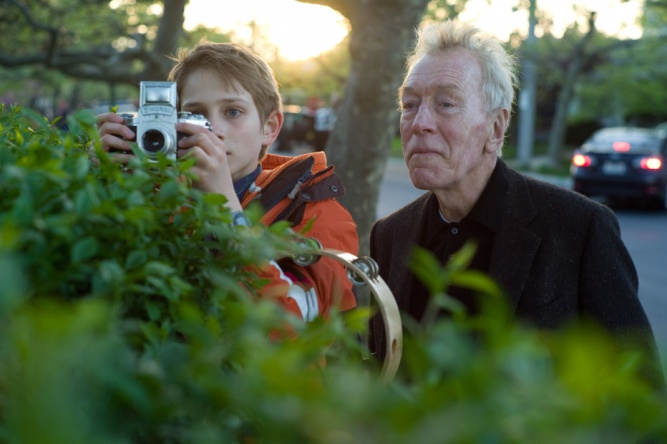 sembra chiederci di affiancarlo, di stargli vicino cavalcando le sue stesse paure e di osservare quel che potrà succedergli. Una sorta di monologo della coscienza, sul filo di scorci di memoria degli insegnamenti paterni e di una madre vista e sentita come assente o comunque, molto distante: Tom Hanks accetta qui un ruolo circoscritto e strumentale al reale epicentro incarnato dal ragazzo mentre a Sandra Bullock è concesso qualche vantaggio, sfruttato al meglio nel segno della sottrazione e contrazione espressive.
sembra chiederci di affiancarlo, di stargli vicino cavalcando le sue stesse paure e di osservare quel che potrà succedergli. Una sorta di monologo della coscienza, sul filo di scorci di memoria degli insegnamenti paterni e di una madre vista e sentita come assente o comunque, molto distante: Tom Hanks accetta qui un ruolo circoscritto e strumentale al reale epicentro incarnato dal ragazzo mentre a Sandra Bullock è concesso qualche vantaggio, sfruttato al meglio nel segno della sottrazione e contrazione espressive.
E se il preludio di Molto forte, incredibilmente vicino rasenta il lezioso e l'estetizzante - la frammentaria immagine raccolta al ralenti dell'uomo che volteggia nell'aria e la tragica danza di fogli di carta che anima la trasparenza delle lettere che vanno a comporre il titolo del film - così come gli inizi affidati ad un bambino logorroico e invadente come molti della sua età , in men che non si dica |
|
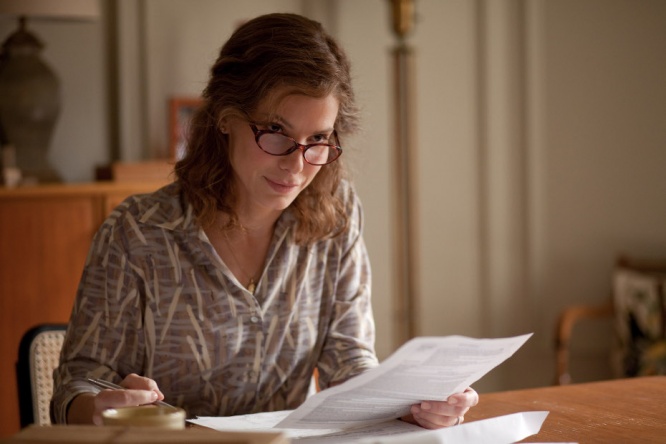 Oskar/Horn ci trascina dentro la sua straordinaria logica - "se il sole esplodesse non ce ne accorgeremmo per otto minuti... era passato un anno dalla morte di mio padre e sentivo che i miei otto minuti con lui stavano per scadere" - asse portante della sua perseverante e tenace ricerca - "Era l'unico modo di allungare i miei otto minuti con lui" - la sola ancora cui aggrapparsi per trovare un senso a quel è sostanzialmente inappellabile. Un cammino fatto di autolesionismi fisici, di rabbia e aggressività senza pari rivolte soprattutto contro la madre - una lacerante sequenza in cui tutto è paradossalmente contenuto, represso, congelato ne dà la misura - di una solitudine e una sofferenza troppo grandi per essere confessate apertamente. Un cammino disseminato di molti segni e segnali, al di là del McGuffin elettivo della chiave, che andranno a spiegare il motivo di un disagio amplificato
Oskar/Horn ci trascina dentro la sua straordinaria logica - "se il sole esplodesse non ce ne accorgeremmo per otto minuti... era passato un anno dalla morte di mio padre e sentivo che i miei otto minuti con lui stavano per scadere" - asse portante della sua perseverante e tenace ricerca - "Era l'unico modo di allungare i miei otto minuti con lui" - la sola ancora cui aggrapparsi per trovare un senso a quel è sostanzialmente inappellabile. Un cammino fatto di autolesionismi fisici, di rabbia e aggressività senza pari rivolte soprattutto contro la madre - una lacerante sequenza in cui tutto è paradossalmente contenuto, represso, congelato ne dà la misura - di una solitudine e una sofferenza troppo grandi per essere confessate apertamente. Un cammino disseminato di molti segni e segnali, al di là del McGuffin elettivo della chiave, che andranno a spiegare il motivo di un disagio amplificato |
|
 di segno (i 6 messaggi del padre alla segreteria telefonica il "giorno più brutto", ad esempio). Molto efficace l'effetto ricercato dalla regia sulle parole urlate dal ragazzo quando racconta, incastonate, sull'onda di un montaggio serrato e disarmonico, frammentario e dirompente, intrecciando tra loro sovrapposizioni di parole e immagini per ricreare la soggettiva del modo di sentire del ragazzo, parafrasandone la sensazione che gli altri possano non comprendere, almeno non del tutto, e che fuori ci siano ora ben più pericoli e caos di quanto non abbia mai percepito prima. E' su questo convulso cammino che incontriamo la flebile presenza di una nonna e del suo alquanto misterioso 'inquilino', ruolo chiave - si direbbe il premio più bello per tanta sofferta determinazione - che non poteva trovare interprete migliore se non nell'attore e regista svedese Max von Sydow, non a caso già interprete feticcio di Ingmar Bergman per ben 14 film.
di segno (i 6 messaggi del padre alla segreteria telefonica il "giorno più brutto", ad esempio). Molto efficace l'effetto ricercato dalla regia sulle parole urlate dal ragazzo quando racconta, incastonate, sull'onda di un montaggio serrato e disarmonico, frammentario e dirompente, intrecciando tra loro sovrapposizioni di parole e immagini per ricreare la soggettiva del modo di sentire del ragazzo, parafrasandone la sensazione che gli altri possano non comprendere, almeno non del tutto, e che fuori ci siano ora ben più pericoli e caos di quanto non abbia mai percepito prima. E' su questo convulso cammino che incontriamo la flebile presenza di una nonna e del suo alquanto misterioso 'inquilino', ruolo chiave - si direbbe il premio più bello per tanta sofferta determinazione - che non poteva trovare interprete migliore se non nell'attore e regista svedese Max von Sydow, non a caso già interprete feticcio di Ingmar Bergman per ben 14 film. |
|
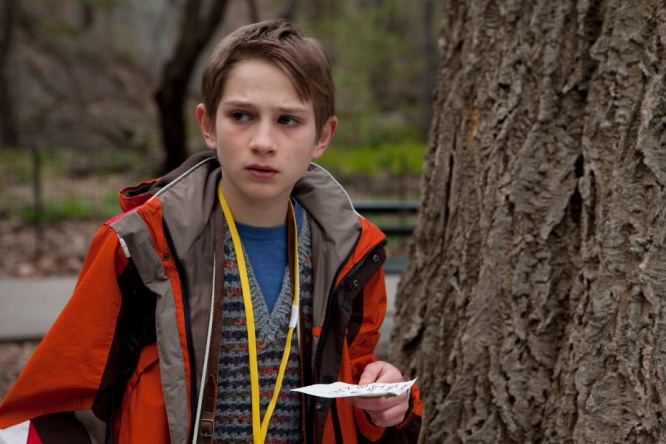 Proprio il genere di interprete che per esprimersi non ha alcuna necessità di parlare!
Proprio il genere di interprete che per esprimersi non ha alcuna necessità di parlare! |
|
|
|
|
|
|
|
|
|
|
|
|
|
|
|
|
Secondo commento critico (a cura di PETER DEBRUGE, www.variety.com)
|
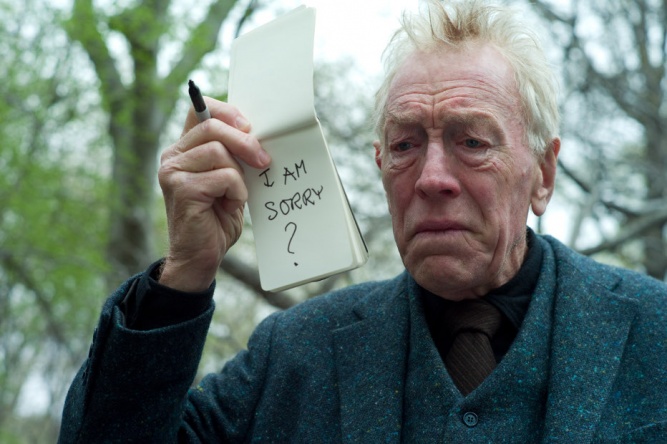 More than a decade after the World Trade Center terrorist attacks, the time is right for a sensitively made studio picture that addresses the confusion, anger and emptiness those events forced upon New Yorkers. For some, Stephen Daldry's "Extremely Loud & Incredibly Close" will be that movie; others will reject its approach as too implausible or manipulative to take seriously. With a heavy heart and even heavier hand, Daldry addresses the tragedy through the experience of a boy struggling to accept the death of his father. The divisive pic's prospects ultimately depend on how this late-arriving awards-season release sits with taste-makers.
More than a decade after the World Trade Center terrorist attacks, the time is right for a sensitively made studio picture that addresses the confusion, anger and emptiness those events forced upon New Yorkers. For some, Stephen Daldry's "Extremely Loud & Incredibly Close" will be that movie; others will reject its approach as too implausible or manipulative to take seriously. With a heavy heart and even heavier hand, Daldry addresses the tragedy through the experience of a boy struggling to accept the death of his father. The divisive pic's prospects ultimately depend on how this late-arriving awards-season release sits with taste-makers.
Because the wounds of 9/11 are still fresh for many, tackling the subject head-on requires a careful choice of material. Daldry and producer Scott Rudin have limited their risk somewhat by adapting "Extremely Loud & Incredibly Close" from Jonathan Safran Foer's generally well-received novel of the same name, which grapples |
|
 with adult themes through the skewed understanding of a precocious young misfit.
with adult themes through the skewed understanding of a precocious young misfit.
Thus, although Tom Hanks and Sandra Bullock figure prominently in the film's marketing campaign, auds hoping to see the two Oscar winners onscreen may be surprised and disappointed to find a story that instead focuses on their characters' 11-year-old son, Oskar Schell. As played by "Jeopardy" Kids Week champion Thomas Horn, who also narrates, Oskar is bright for his age, but severely impaired when it comes to even the simplest social interactions.
Oskar acknowledges that he might have Asperger syndrome: "Test results were inconclusive," he says. The line gets a laugh, but the film leaves little doubt: Bullied by his peers and oblivious to the effect his actions have on others, Oskar has whatever form of fictionally skewed autism suits such gifted-outsider storytelling. The most relevant symptom here is the fact that the young man fixates on a |
|
 task and obsesses about it until completion, all the while rattling off thematically useful facts like some sort of latter-day Jonathan Lipnicki.
task and obsesses about it until completion, all the while rattling off thematically useful facts like some sort of latter-day Jonathan Lipnicki.
Oskar's primary preoccupation is finding the lock that fits a key stashed within an envelope hidden inside a blue vase stored on the top shelf of his parents' closet. For no good reason, Oskar believes the key will open some understanding into the death of his father, a jeweler named Thomas Schell (Hanks) who was caught in the Twin Towers on Sept. 11. Oskar came home early from school that day and found six messages on the answering machine. Daldry shows the boy's face as he listens, processing the information as his dad's recordings get progressively more dire.
Operating with the same sort of tough-love sentimentality he brought to "Forrest Gump" and "The Curious Case of Benjamin Button," screenwriter Eric Roth has preserved the novel's sensibility in keeping |
|
 Oskar at the center of his adaptation (a parallel narrative, drawn from letters written by his paternal grandparents recalling how the bombing of Dresden impacted their relationship, has been omitted from the film). As such, his primary challenge is taking the modern fable suggested by Oskar's expedition and trying to make it work in the real world.
Oskar at the center of his adaptation (a parallel narrative, drawn from letters written by his paternal grandparents recalling how the bombing of Dresden impacted their relationship, has been omitted from the film). As such, his primary challenge is taking the modern fable suggested by Oskar's expedition and trying to make it work in the real world.
Since the envelope containing the key was labeled "Black," Oskar decides, as only a child might, that he should interview every New Yorker with the last name Black. The first one he visits is played by Viola Davis, an actress gifted enough to draw tears of identification in a cameo as brief as this. The rest are handled mostly via montage, a blur of faces in what appears to be a futile search.
Daldry and Roth allow auds to believe that Oskar's mother (Bullock) is either oblivious or uncaring enough to let her |
|
 son go out exploring New York City alone, with only his tambourine to calm him against the many things that trigger his anxiety. The film uses these two shaky assumptions as the basis for a pair of cathartic twists, relying on its powerful supporting cast and sheer production value -- especially Chris Menges' clear-eyed lensing of New York and Alexandre Desplat's appropriately oxymoronic score, which treads the line between playfulness and respect -- to disguise the trickery involved.
son go out exploring New York City alone, with only his tambourine to calm him against the many things that trigger his anxiety. The film uses these two shaky assumptions as the basis for a pair of cathartic twists, relying on its powerful supporting cast and sheer production value -- especially Chris Menges' clear-eyed lensing of New York and Alexandre Desplat's appropriately oxymoronic score, which treads the line between playfulness and respect -- to disguise the trickery involved.
Though absent for much of Oskar's quest, Bullock makes a strong impression portraying a mother who can't compete with the special bond shared by her son and husband (played by Hanks as a sort of super-dad). Max von Sydow supplies an odd paternal presence as a mysterious mute figure known only as "the renter," who accompanies the boy on his search, communicating via handwritten notes. His presence resonates, despite the fact that |
|
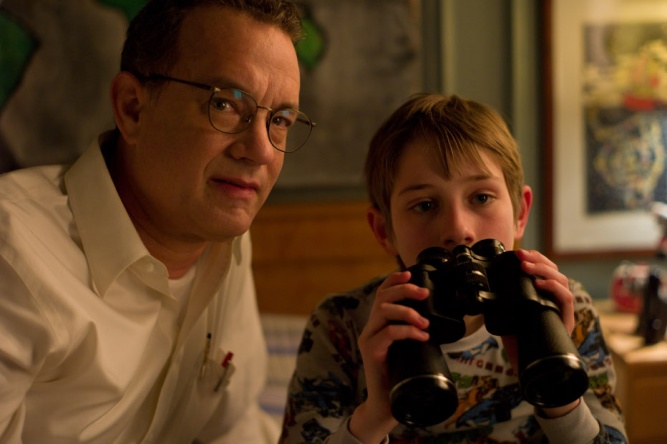 his backstory has been left entirely on the cutting-room floor. These actors' work, along with modest yet touching contributions by Jeffrey Wright and John Goodman, elevate a tale that might have suffocated from its own cloying sense of whimsy. Coincidentally, the film has the same basic foundation as the recent "Hugo": Both tell the story of a boy who has lost his father desperately looking for some last message and instead finding a surrogate family in the process. But whereas Martin Scorsese's film speeds past the tragedy -- much as Foer does in his novel, focusing instead on the need to move on -- Daldry transforms the experience into a "where were you on 9/11" sharing session.
his backstory has been left entirely on the cutting-room floor. These actors' work, along with modest yet touching contributions by Jeffrey Wright and John Goodman, elevate a tale that might have suffocated from its own cloying sense of whimsy. Coincidentally, the film has the same basic foundation as the recent "Hugo": Both tell the story of a boy who has lost his father desperately looking for some last message and instead finding a surrogate family in the process. But whereas Martin Scorsese's film speeds past the tragedy -- much as Foer does in his novel, focusing instead on the need to move on -- Daldry transforms the experience into a "where were you on 9/11" sharing session.
With its re-enactments of that fateful day, "Extremely Loud" plays a bit too much like one of those perfectly lit, heart-tugging segments TV networks air during the Olympics. It hardly matters that Horn |
|
 manages to give such a naturalistic, unmannered performance as the young Oskar when everything around him has been so deliberately orchestrated to provoke a specific reaction. And yet, the 9/11 imagery featured -- including views of the Twin Towers smoking and Tom Hanks falling through the air in slow-motion -- is sure to trigger wildly different responses from every person who sees the film, leaving audiences room to take away more than that which the filmmakers so insistently intended for them to feel.
manages to give such a naturalistic, unmannered performance as the young Oskar when everything around him has been so deliberately orchestrated to provoke a specific reaction. And yet, the 9/11 imagery featured -- including views of the Twin Towers smoking and Tom Hanks falling through the air in slow-motion -- is sure to trigger wildly different responses from every person who sees the film, leaving audiences room to take away more than that which the filmmakers so insistently intended for them to feel. |
Bibliografia:
Nota: Si ringrazia Emanuela Semeraro (Warner Bros. Pictures Italia)
Links:
Galleria Fotografica:
Galleria Video:
 Molto forte, incredibilmente vicino - trailer 2
Molto forte, incredibilmente vicino - trailer 2
 Molto forte, incredibilmente vicino - trailer
Molto forte, incredibilmente vicino - trailer
 Molto forte, incredibilmente vicino - trailer (versione originale) - Extremely loud & Incredibly Close
Molto forte, incredibilmente vicino - trailer (versione originale) - Extremely loud & Incredibly Close
<- torna alla pagina Movies & DVD
|
|
|


